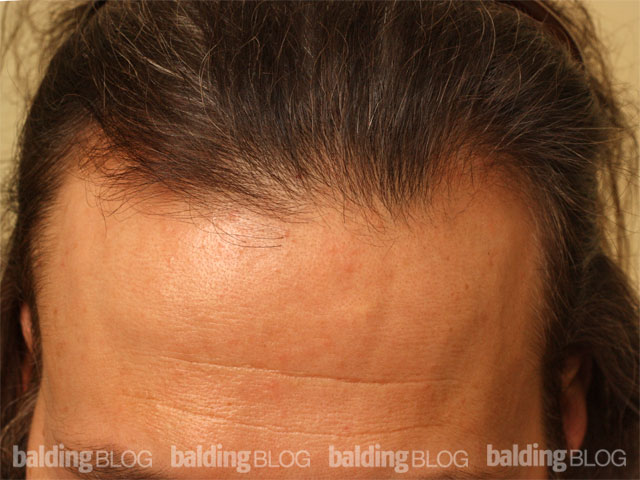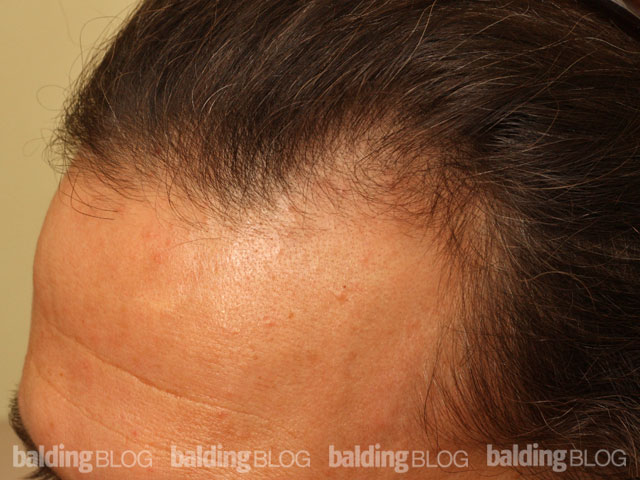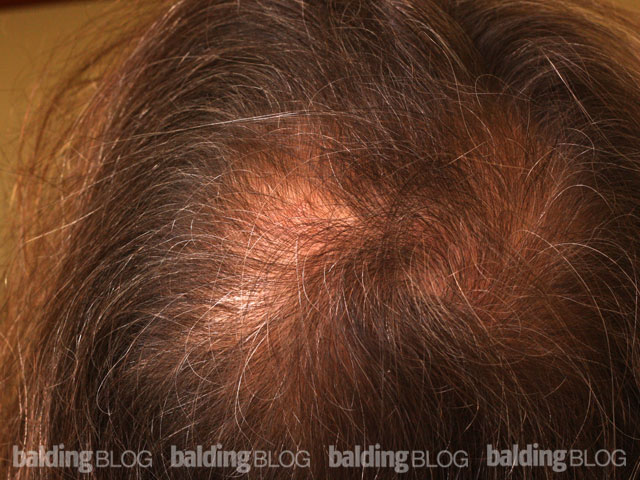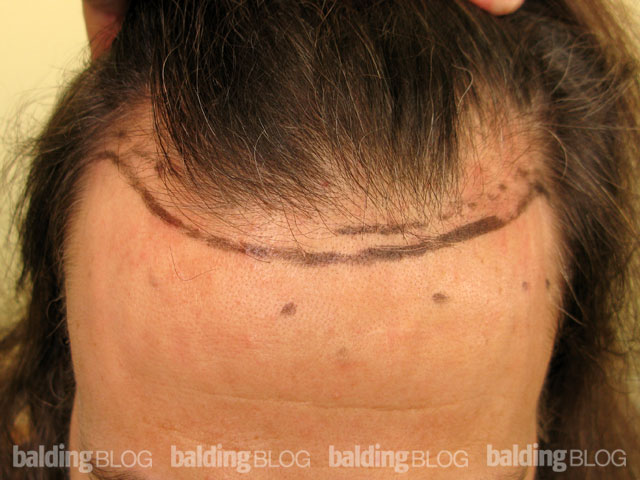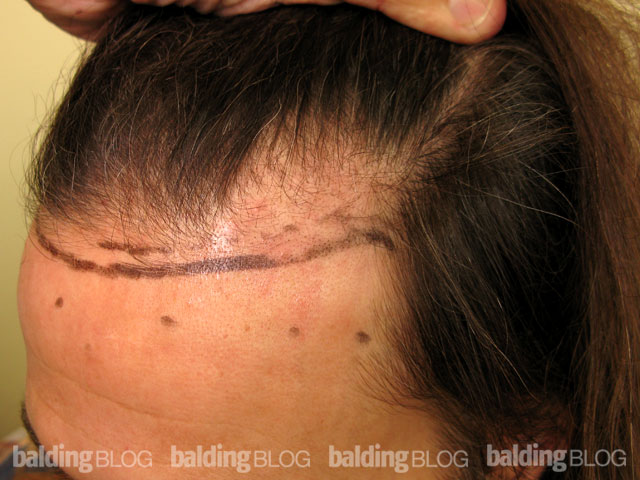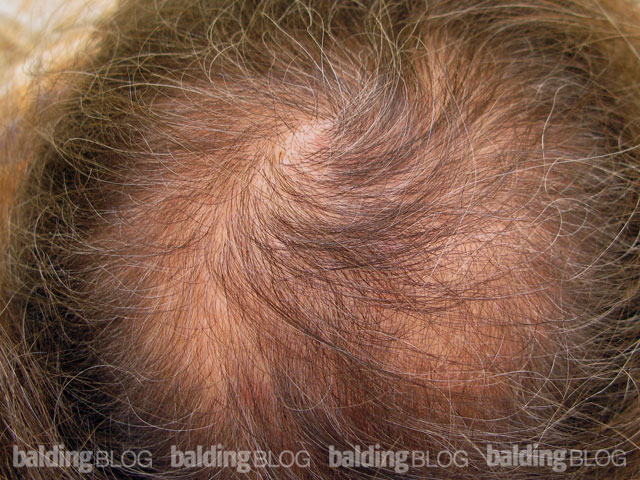 As I’ve mentioned before, I’m a part of an email group of hair transplant doctors that share information amongst each other. The other day I received an email from a well respected doctor (let’s call him Doctor A) reporting that he’s now had two patients in the past 12 months who had persistent erectile dysfunction (ED) even after they stopped finasteride (traditional 1mg dose). These are two patients out of thousands that this physician has prescribed to, and I have no knowledge of other potential health factors or even full details on the cases.
As I’ve mentioned before, I’m a part of an email group of hair transplant doctors that share information amongst each other. The other day I received an email from a well respected doctor (let’s call him Doctor A) reporting that he’s now had two patients in the past 12 months who had persistent erectile dysfunction (ED) even after they stopped finasteride (traditional 1mg dose). These are two patients out of thousands that this physician has prescribed to, and I have no knowledge of other potential health factors or even full details on the cases.
Other doctors in the group chimed in:
- Doctor B in the email group responded that he had been prescribing finasteride from even before it was approved to treat hair loss and he has never seen one case in this situation.
- Doctor C wrote about two patients who had the problem in some 1500-2000 patients.
- Doctor D said that he’d also seen two patients in his 18 years of practice that talked about ED permanence.
- Doctor E who has also been practicing about 18 years has seen no cases of ED permanence.
- And then there’s me (I’ll be Doctor R). I echo that from the thousands of patients I have prescribed finasteride to, I have never seen nor heard of such a complaint after the patient has stopped the drug.
So while I don’t have specific case info or medical history of those claiming permanent side effects, it seems that there are 6 cases out of maybe between 6,000-10,000 prescriptions (estimated). Unless you’re one of the 6, the risk is extremely limited (if it is shown that the medication is the cause). I’ve always maintained (my opinion) that these side effects are reversible upon stopping the medication, as this has been reported in peer-reviewed studies and in thousands of my own patients. However, I make it my job here to educate our readers as I become more informed. I’m not writing this post with the intent to scare anyone, but do whatever you’d like with the information. We still don’t know for sure that the “permanent” ED cases are even related to finasteride. Remember, I do not sell finasteride to make Merck profitable. If that were the case, I wouldn’t tell patients (or readers of this site) how to cut into Merck’s Propecia profits by buying the generic 5mg and splitting the pills when discussing alternative suppliers.
The incidence of low testosterone in men is high. There are reports that 44% of men have low testosterone levels. We know that 20% of men have ED, 30% of men have ED, 40% of men have ED and so on. That is the market that Viagra sells to. Can we be confusing the ED observations from Propecia and the ED resulting from low testosterone levels? There are many causes of ED, so we should be careful not to state that the ED we are seeing was from the Propecia/finasteride that these men were taking.
I still believe in this medication fully for treating genetic male pattern baldness, and I must point out that these reports are still extremely rare. The alternative for the balding male is to continue to go bald. For some, that small risk of sexual side effects may not be worth abandoning their hair. Sill, the consumer (you) must make his own decisions on what to do with such reports. I fully expect my inbox to be flooded with “See, I told you so” emails from forum trolls, but if anything, this should show you that I’m not disregarding the claims outright. As I’ve always said, I’ve never seen any case and the medical literature supports that. I do, however, appreciate respectful discussion.
Also, keep in mind the study we mentioned yesterday about common everyday pain relievers like aspirin and ibuprofen being linked to erectile dysfunction. Who knows what else is in the systems of those claiming permanent ED.
Tags: finasteride, propecia, side effects, erectile dysfunction, libido, hairloss, hair loss

 As I’ve mentioned before, I’m a part of an email group of hair transplant doctors that share information amongst each other. The other day I received an email from a well respected doctor (let’s call him Doctor A) reporting that he’s now had two patients in the past 12 months who had persistent erectile dysfunction (ED) even after they stopped finasteride (traditional 1mg dose). These are two patients out of thousands that this physician has prescribed to, and I have no knowledge of other potential health factors or even full details on the cases.
As I’ve mentioned before, I’m a part of an email group of hair transplant doctors that share information amongst each other. The other day I received an email from a well respected doctor (let’s call him Doctor A) reporting that he’s now had two patients in the past 12 months who had persistent erectile dysfunction (ED) even after they stopped finasteride (traditional 1mg dose). These are two patients out of thousands that this physician has prescribed to, and I have no knowledge of other potential health factors or even full details on the cases.


 Getting a second opinion is always a good idea as I offer this as a service, but I would need to see you to make such an evaluation worthwhile. You’re not far from my LA office. Many women have this problem with sufficient donor hair, but that can be determined upon examination of the scalp.
Getting a second opinion is always a good idea as I offer this as a service, but I would need to see you to make such an evaluation worthwhile. You’re not far from my LA office. Many women have this problem with sufficient donor hair, but that can be determined upon examination of the scalp.